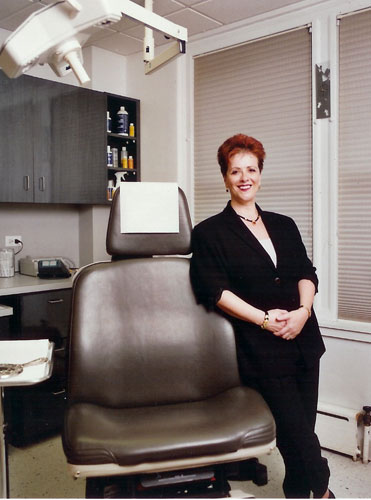Alumni Profile: Dr. Judith Hellman '81

Dr. Judith Hellman
Photo courtesy of Dr. Judith Hellman
As young as age 4, Judith Hellman was getting a serious music education in her native Hungary, learning solfège and harmony at an after-school music program. She got accepted to a music conservatory as a classical violinist at 12, a rite of passage usually reserved for high school students. That experience was cut short when she and her mother escaped communist Hungary and fled to Israel in 1969. Hellman was forced to leave her handmade violin behind, but not her passion.
She pursued music in Israel with renowned violist Ilona Feher until her two years of required military service, when she worked as a flight paramedic in one of the Israeli Air Force's health centers. "There were no violins in the Army bands," she says. After her military service, Hellman took private lessons with Howard Kirn, a colleague of Berklee's founder Lawrence Berk. By the next year, she had found a niche for her violin at Berklee—an experience she recalls as "the most wonderful time of my life and a total immersion in music." Ultimately, Hellman followed her parents' footsteps and pursued a career in medicine; she has practiced dermatology in Manhattan for the last 15 years. Nevertheless, she keeps her Berklee experience close and is enjoying her 12-year-old son's pursuits as a pianist, composer, and lyricist.
How did Berklee help you transition from classical music to jazz?
In classical music, there is symmetry. You always anticipate what's next. I loved jazz, all the different chords. You can't always anticipate what it's going to do, yet it always makes sense. It was very liberating. I just really thought it was wonderful to be playing music that gives you the freedom to be creative.
I was playing violin but trying to make it sound like John Coltrane. I don't think it was easy to play violin like jazz and I worked very hard to get the sound I was trying to get. It was hard to reconcile those two ideas.
How else did Berklee expand your musical horizons?
I also discovered writing at Berklee. I had a strong background in harmony. I placed into Harmony 4, the highest level. My harmony teacher told me to go write a tune, using a chord progression. I was flabbergasted. I didn't know what to do. My classical upbringing had not prepared me for anything like this. I lived in an apartment on Haviland Street, and I played what amounted to my very first original tune over and over again. The next morning, one of the neighbors in the hallway was whistling my tune. I thought, "Wow, I must have done something good." It was like having a new baby. I still play it sometimes today. I love it. That's how I got into writing. It's striking that you can take a chord progression and do something of your own with it.
Who do you count among your Berklee influences?
I took all the courses taught by [the late] Herb Pomeroy. It was just a rich experience. Herb was an incredible teacher, and the only teacher for whom one needed an audition. I considered it an honor that he accepted me to his first class, Line Writing, then his next, Writing in the Style of Duke Ellington, and then Jazz Comp. It gave me a great sense of accomplishment and a feeling of maturity to have Herb's techniques under my belt, as if I had joined a special club.
At Berklee, I was close with Frank Macchia, who now does film writing in Los Angeles. Frank and I spent a lot of time together; he is one of the most gifted writers. He listened to Frank Zappa and Stravinsky, and he incorporated that into his own music. He opened my eyes and ears up to writing and to unconventional styles and sounds.
How does your Berklee education inform your work as a doctor?
I think there is a connection through a number of aspects. First, there is the discipline you need for both. Second, the idea of being a perfectionist and pursuing something until it's done right. Third, Berklee taught me to be creative, to use given knowledge or facts (or melodies and music) and make something new of it or with it. This is a good skill in medicine, where sometimes it is thinking outside the box that brings the best result. Also, in both music and cosmetic dermatology, my specialty, beauty, harmony, and a sense of aesthetics are important. There is a lot of freedom to be creative in jazz, and the same applies to what I do now.
What role does music continue to play in your life?
My son Michael is in a special music school (called, appropriately, the Special Music School) in New York. He's good at the piano, a gifted composer, and a talented lyricist. I not only encourage him to do these things, but I understand it. I fully appreciate his talent. It's another way of continuing the music for me, even though I don't pursue that as a living. It's like I'm getting a second kind of musical education.
You can take somebody out of music, but you can't take music out of them. Now, I only play at home a little. But your ears keep growing, if you keep listening. I get a whole different grasp of music every year. I still listen to a lot of jazz. It's one of the most satisfying kinds of music. I still love the people from my Berklee period: [John] Coltrane, [Miles] Davis, Stanley Turrentine. To me, the music never really stopped.
